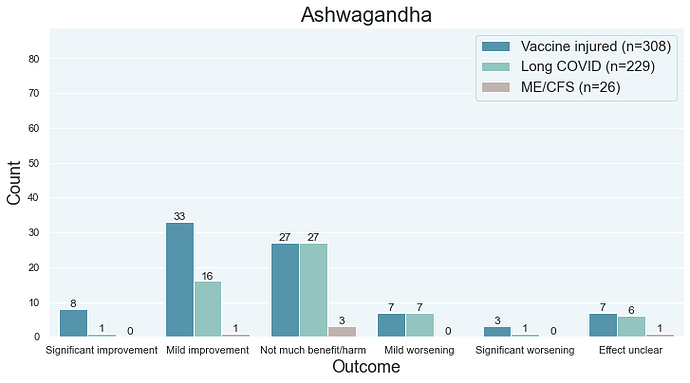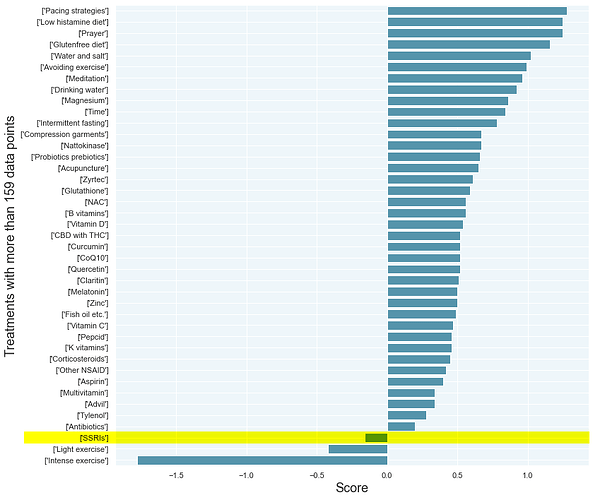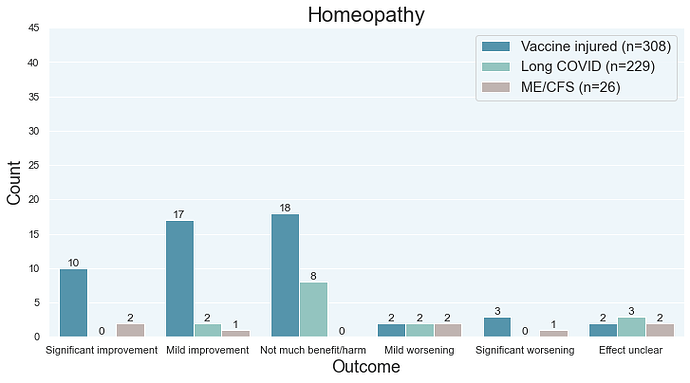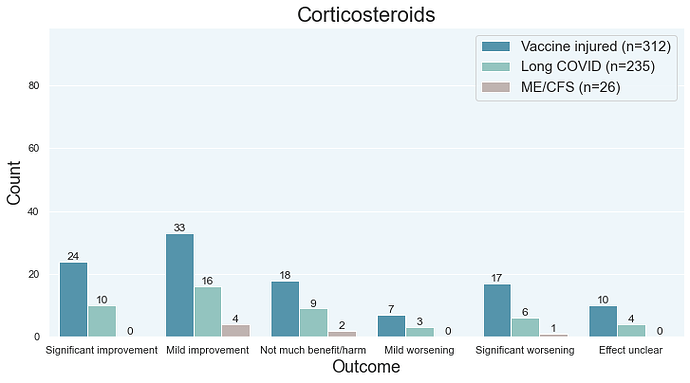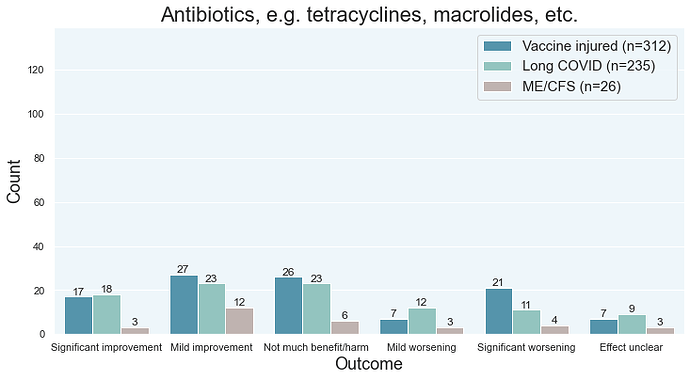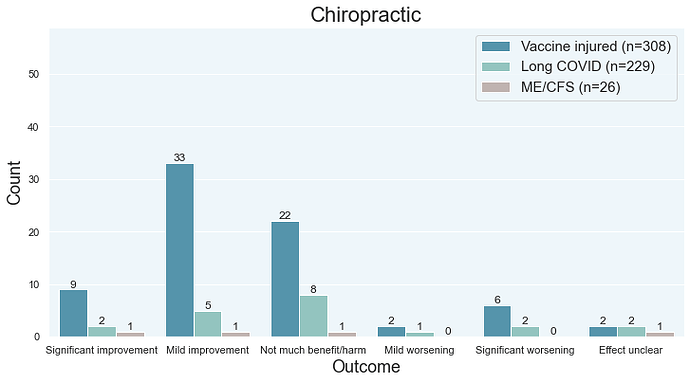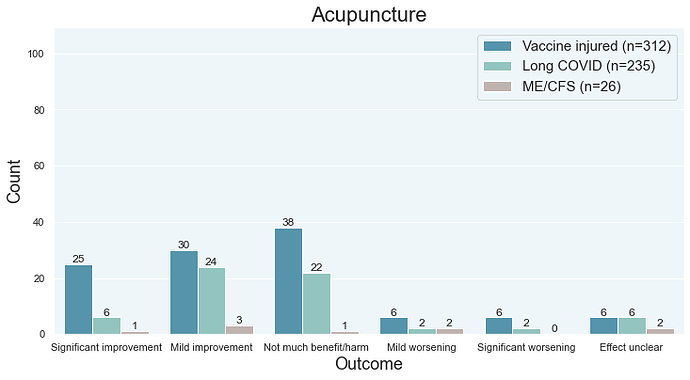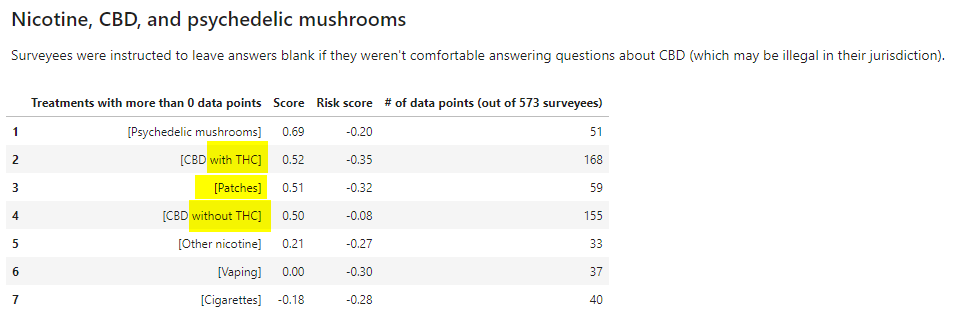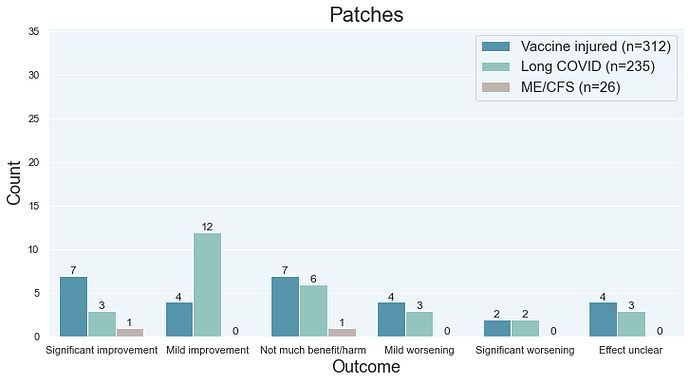Support groups tend to only talk about positive experiences so not a lot of people are talking about bad treatments. Here’s what I’ve compiled as of Jan 2024.
These treatments seem like a bad idea:
- Ashwanganda
- Most psych drugs including SSRIs, SNRIs, TCAs
- Gabapentin
- Homeopathy
- Osteopathy
These treatments are riskier than you may think:
- Beta blockers
- Corticosteroids
- Antibiotics
- Chiropractic treatments
- Acupuncture
- Nicotine patches
- THC (cannabidiol with THC)
- HELP apheresis ???
Not discussed: gadolinium contrast dye for MRIs with contrast, ‘flox’ antibiotics.
Many practitioners use SSRIs and gabapentin even though they may be causing more harm than good. Please be careful.
These treatments seem like a bad idea
Ashwaganda
A few PSSD sufferers report that their PSSD was triggered by this. (PSSD is a debilitating chronic condition.) This is the main reason why I have concerns about this- the risk/reward doesn’t look good because of it.
Only 1/134 recovered, which is lower than random chance. However, there’s not quite enough data to draw a definitive conclusion.
A few LC sufferers report worsening from this- it seems to be one of the risky treatments out there. Out of 60 popular treatments, this is the #21 in terms of having a negative experience.
SSRIs, SNRIs, TCAs, gabapentin, and probably most psych drugs
Here are the risk rankings for 60 popular treatments. The line that starts with celexa corresponds to SSRIs. The line that starts with Remeron corresponds to atypical TCAs. If exercise wasn’t on the survey, those classes of drugs would be the riskiest (highest rate of negative experiences reported).
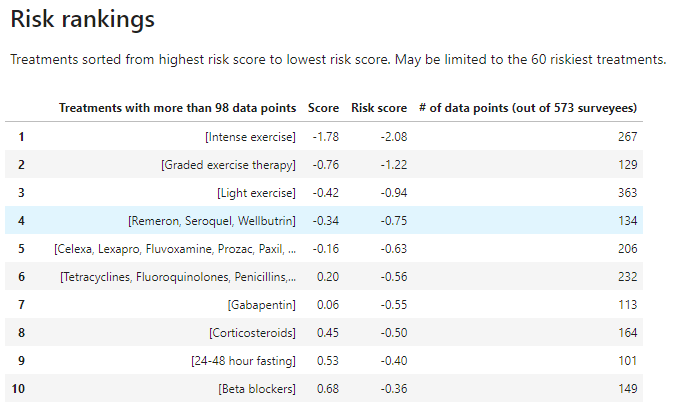
Here are the classes of antidepressants rated against each other. See the “Risk score” column.
Calculation details: -3 points for significant worsening, -1 for mild worsening, 0 for other survey answers (e.g. unsure). The risk score is the average of all the points.
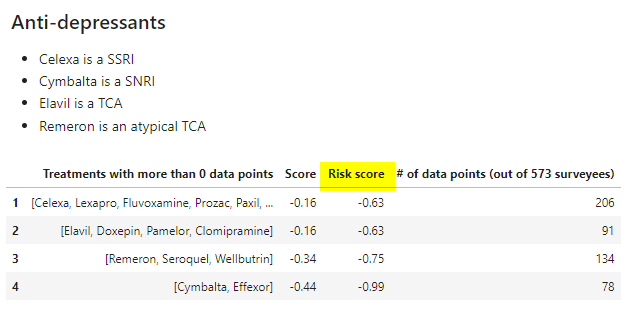
All psych drugs are rated poorly when it comes to patient satisfaction. See below.
For a deeper dive into SSRIs and their black box warnings (e.g. suicide risk), see this post.
Benzodiazepines and Ativan are also known to have suicide risk. However, I haven’t seen enough data to draw more reliable conclusions about those types of drugs. Suicide risk is not something that a survey is good at detecting. Try VIGIAccess.
Homeopathy
For some reason, people report negative experiences from this.
0/62 recovered and rated homeopathy highly. The risk/reward does not seem compelling.
Osteopathy
For some reason, people report negative experiences from this.
0/42 recovered
These treatments may be riskier than you think
It is unclear if they are or are not worth doing. However, be aware that there is a risk of a very unpleasant experience.
Beta blockers
Of 60 popular treatments, this is #10 in terms of negative experiences.
To a much lesser extent, compression garments have some risk. It’s not clear to me why people report negative experiences with compression garments.
Corticosteroids
This was #8 in the risk rankings. Medical practitioners such as family doctors may underestimate these drugs because they are commonly used in healthy people without problems. However, chronic illness patients react to them at unusually high rates.
This is a very polarizing class of drugs with an unusual number of people reporting positive experiences.
The survey did not differentiate between short-term and long-term use. Short-term use may make the results look better than they are because patients won’t experience the long-term side effects that comes with prolonged use.
Antibiotics
Patients react to these at unusually high rates.
Chiropractic treatments (?)
For some reason, people report negative experiences from this.
1/97 recovered, in line with random chance.
Acupuncture
One of the medium risk / risky treatments.
Nicotine patches and THC
Cannabidiol without THC seemed fine, but CBD with THC led to negative reactions in some people.
Nicotine patches were more popular in the LC participants surveyed. For some reason, people had negative experiences with them.
HELP apheresis**
1/8 people said that HELP apheresis and triple coag helped them the most. That person recovered.
However, there are also negative anecdotes regarding HELP apheresis- possibly including 1 patient who committed suicide.
I really am not sure about this treatment.
How to get data on specific treatments
See this post:
There is data on uncommon treatments such as the MLM frequency wand, IVIG, etc.
